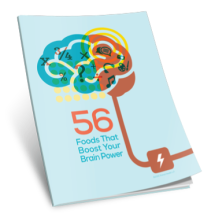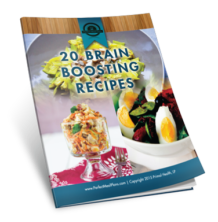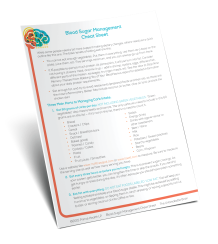Advertisement
Worried about Your Memory and Mental Sharpness?
Discover what one patient did to restore faltering cognitive function…and get 12 brain-healthy actions you can start using today!*
by Dr. Will Mitchell
(LAc, DOM (NM), MS Nutrition, Austin Clinic for Functional Medicine)
CASE STUDY:
The following person is a composite description of participants in the memory loss trial conducted by the Buck Institute For Aging and UCLA in 2014. The name is fictional for reasons of privacy, but the results are real. Individual results will vary.
Barbara Ann just wasn't the same…

Her mother had died following progressive brain decline. And now, at age 67, she was worried about her own mental sharpness, concentration, and memory recall.
She began to struggle with short and long-term memory. She found it harder to concentrate on important things for any length of time. Her mind would wander more frequently than usual.
Sometimes, on her way to work she’d forget her exit, get lost, and show up late.
She sometimes didn't recognize coworkers. Couldn't remember reports she'd read. And would forget things her boss told her to do.
Her children noted that, at home, she started mixing up the names of her pets. And in conversation, she would frequently lose her train of thought mid-sentence.
And then one day, Barbara Ann suddenly couldn’t remember where the light switches were in the house she had lived in for years.
Her doctor believed that, because her mother had experienced a progressive mental decline in her later years, Barbara Ann might have inherited the same condition.
But she didn’t want to accept that. She wondered… "Could the problem be stopped, and even reversed?"
Or was the independent life she had known over?
The answer she found might surprise you…but she first had to change doctors.
Barbara Ann met a remarkable doctor who was doing something revolutionary in the field of brain health, memory recall, and mental sharpness.
This doctor knew that the established medical treatment — drug therapy — mainly targeted people with a brain disorder. And that it was no solution for those who simply wanted to protect their memory and cognitive skills as they aged.
In particular, this doctor believed that cognitive decline was not a single problem that could be successfully targeted with drugs, but rather a systemic one, needing a whole-body approach to good health.
"It’s like having 36 holes in your roof," he said, "but you’re fixing just one. No matter how well you patch that one hole, you’ve got 35 more leaks." So, the problem persists.[1]

Fortunately for Barbara Ann, this brave doctor did not settle for the conventional medical wisdom of using drugs to target a single mental problem — a therapy that had already demonstrated poor results.
Instead, he wondered what would happen if he designed a brain health regimen that treated the whole body… that is, if he addressed all of the factors he believed were contributing to the mental decline.
To find out, he designed a trial in which the participants – all of whom were suffering severe cognitive decline – did more than a dozen things to promote good brain health — and all at once![2]
These things weren't difficult. But they did require a willingness to do them, and to stick with them.
Barbara Ann's family urged her to try.
She joined the study and started eating brain-nourishing foods, including one that has shown anecdotally to restore cognitive function. I'll reveal that food in a moment.[3]
She made sure to get regular exercise. She took steps to reduce the stress in her life. She got extra sleep…
She eliminated some prescription drugs that had potentially brain-harming side effects, including a few that will surprise you because they are so widely prescribed.
She improved her diet and controlled her blood sugar.
She spent more time with friends from church…
She did several more things the doctor asked… all of which you'll discover in a moment.
AND WHAT HAPPENED?
STARTLING RESULTS* (Individual results will vary)
In three months time, Barbara Ann claimed she was no longer confused. She could follow instructions. She could memorize and retain new information. She could write reports, conduct meetings, and meet deadlines.
On a personal note, her children said their mother never again forgot which of her poodles was Jezzie and which was Lucy.
And, today, two and a half years later at age 70, Barbara Ann still holds down her full-time job.
Her "progressive cognitive decline" stopped and her mind began to sharpen again. Her memory and mental function improved. And, as far as Barbara Ann was concerned, her life was saved!
Was it divine intervention?
Hi, I’m Dr. Will Mitchell (LAc, DOM, MS Nutrition). Barbara Ann’s story may seem like a miracle, but it’s really the predictable result of giving your body and brain exactly what it needs for good health, including…
…Eating certain kinds of fats and proteins… doing the right kinds of
physical and mental exercises.. and adding social and spiritual components
to your life.
And also stopping those things that may be damaging your brain. These can be a variety of stressors, including several potentially harmful foods and some drugs prescribed for non-related problems that may, for some people, have brain-harming side effects.
I'll show you 12 specific things you can start doing to support your brain in just a moment.
The good news is that, once you give your brain what it needs, and also stop those things that are hurting it, you may experience dramatic results similar to Barbara Ann's in a matter of weeks* (Individual results will vary).
Consider this…
A small trial conducted by the Buck Institute for Research on Aging in conjunction with the UCLA Mary S. Easton Center, found that 90% of subjects following the doctor's multi-point systemic program saw sustainable cognitive improvement. The lead researcher said, "The results…suggest that memory decline may be reversed, and improvement sustained with this therapeutic program."[2]
These results stunned some in the medical establishment.
Why? Because the doctor who designed the study used no drugs. Instead, he tried to get his subjects healthy.
What's exciting is the UCLA trial suggests if you make a few diet and lifestyle changes, your body can actually stop and reverse memory decline and go on to build a stronger brain that resists decline and disease — even at an advanced age.
In fact, you'll see how to do that today. And, frankly, it couldn't be more important…
Statistics show 1 in 3 seniors die of diseases related to severe cognitive decline.[4]
And according to research published in the journal Lancet Neurology, the unhealthy brain changes associated with severe cognitive diseases can begin 10 to 20 years before the symptoms show.[5]
Why let that happen? Why lose your precious memories? Why risk losing your freedom and independence?
Today, I will show you the tools and methods that can help keep your brain healthy and sharp.*
And why should you listen to me? Two reasons…
First, I’ve adapted the methods from the UCLA trial for use at my clinical practice in Austin, Texas. And I’ve added a few of my own, based on my training and experience in Nutritional, Oriental and Functional Medicine.
Second, and most important, my patients have reported excellent results, and many of them were experiencing issues similar to Barbara Ann's. *Individual results vary.

In fact, I wrote a book on this subject that has been used by thousands of people struggling from the same issues. The book is titled, "The Unbreakable Brain: How to Shield Your Brain from Cognitive Decline for Life."*
I’m pleased to say that many who have read my book claim it contains some of the most helpful information about general cognitive decline in the field, along with a simple plan of action to support long-term brain health.
So, today, I'm going to share — in detail — 12 brain-healthy actions from my book that may help you to…
- improve your mental function*
- preserve your memories*
- protect your brain from decline*
And if you'd like to learn even more brain-healthy actions — along with the full 28-day brain-renewal program I've developed for my patients — you can get my book, The Unbreakable Brain, at half price today.
But that's optional, of course. There's no requirement to buy a book. I promised you the solutions I prescribe for my patients, and you'll get them. The 12 valuable brain-supporting actions you're about to learn are yours FREE with no obligation.
Let's get started…
What is Alzheimer's-Dementia vs. Generalized Cognitive Decline?
I think it's important to start here, so you'll understand you have nothing to fear… because there are specific things you can do, starting today.
You might think you have early signs of a degenerative cognitive disease like Alzheimer's, but according to the Alzheimer's Association, just 1 in 9 Americans over age 65 have it, and 1 in 3 over aged 85.[6]
More commonly, people experience "Generalized Cognitive Decline," which manifests as memory loss, confusion, and declining mental sharpness. All of these things can result from poor nutrition, lack of exercise, and some drugs and lifestyle choices.
You can prevent, stop, and even reverse these types of problems. You'll see how just ahead.
Alzheimer’s, on the other hand, starts as an inflammatory immune response that creates plaques around damaged neural cells. To date, the best prevention is taking steps to avoid this damage in the first place. And just ahead I have some suggestions for you that I believe may be very helpful.
Researchers theorize that the build-up of plaques around damaged neural cells is an immune system repair action that has gone awry, which can happen under conditions of prolonged stresses.
These stresses can be from genetics, bad foods, environmental factors, from many popular prescription drugs that can have brain-harming side effects, and in some cases, from a lack of the good fats and proteins your brain needs to thrive over the long run.
This last problem is common, and it’s not just in people suffering from disease. Many of my patients have brains that I believe are starved for healthy fats.
You can easily correct a diet that "lacks healthy foods," and you can specifically add brain-healthy fats to your diet, as you'll see in a moment. But first…
For younger people, clearing these brain plaques is fairly easy, as it's part of the routine healing process.
But as we age this becomes much harder to do. And yet, if these plaques aren't cleared, they may grow larger and start to tangle the brain's neural fibers.
And then along with chronic body inflammation, which is common in our advanced years, the plaques will grow and worsen.[7]
Let me show you what happens if your neural pathways get gummed up with plaques and tangled fibers, and then I'll show you 12 brain-healthy actions that may help prevent neural damage and cognitive decline.
Neurons are brain cells that send signals to other cells — messages like move your hand… remember that date… feel hot and cold.
The information travels from one cell to another across a neural connection called a synapse. And communication across the synapses is made possible by brain chemicals called neurotransmitters.
Now, don't worry, I'm not going to give you a biology lesson. And, in fact, to make this easy, think of…
ROADS, ROUTES, & BRIDGES
In particular, think of the synapse as a bridge between brain cells, and the neurotransmitters as cars crossing that bridge. Inside the cars are messages that one neural cell sends to another.
Working together, your neurons, synapses, and neurotransmitters make it possible for you to think, to learn, and to remember…
…And also to experience emotions, move muscles, and carry on thousands of automatic body functions every minute of the day.
Okay… now imagine if this system is gummed up with plaques. It's like a road cluttered with debris after a storm. So, the communication slows, and in some cases, it can fail.
Can you stop this process?
Unfortunately, no cure for Alzheimer's has been discovered yet. But you can take action to reduce chronic body inflammation, and to avoid the stressors that cause damage to the neural cells in the first place. And you should!
However, if you have the more common generalized cognitive decline, and not a progressive disease, the answer is…Yes, you can stop it! Just build more neural cells and synapses*. And I'll show you how to do that in a moment.
You see, the more neural cells and synapse connections you have, the more pathways your brains has to conduct its communication*.

It's like having more roads. If a few roads are washed out… no big deal, the neural information just takes another route and still reaches its destination.
On the other hand, if the plaques and tangles get the upper hand, they will begin destroying the synapses and eventually the brain cells themselves.
For some, that's the beginning of cognitive problems. Because when synapses die, lines of communication are shut down.
WHEN MEMORY FALTERS
Suddenly, you may have trouble remembering. Things that were once familiar may become harder to recognize. You might start mixing up names and places.
And then, as the condition progresses, the neural cells can start dying, too…
That's when researchers say memories become harder to recall. You may also find it difficult to retain new things, such as names, faces, and directions. Friends and family members may observe confusion and subtle changes in behavior.
Perhaps you've already experienced some of this… but remember, as Barbara Ann and many others in the trial showed, the problems of general cognitive impairment can be stopped and reversed — and at advanced ages too!*
I believe — and brain researchers have theorized — you just need to do two things…
1. Take actions to build more neural cells and synapses.*
And…
2. Try to stop damaging the neural cells and synapses you currently have.*
One way to work toward these objectives is to start with the 12 brain-healthy actions I'm giving you FREE today. I use these in my practice, and they are fully detailed in my book, The Unbreakable Brain: Shield Your Brain From Cognitive Decline For Life.*
I think you'll find them easy to do. So, let's take a look…
12 Ways To Help You Build Your Own Unbreakable Brain*
BRAIN HEALTHY ACTION #1
Consider alternatives to Statin Drugs†
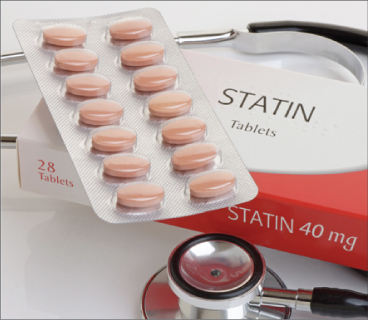
Yes, I know, this is a surprise. But take heed…
Statin drugs lower your body’s ability to make cholesterol, leading to less of it in your blood stream. But, in some people, these drugs can cause side effects such as memory loss and impaired mental function.
The theory goes like this — fully 25% of the cholesterol in your body is used by your brain for things like repairing and replacing brain cells, protecting nerve cells, and helping to speed the signals between neurons that control thought, movement, and sensation.[8]
Now, do you think that protecting neural cells and speeding the signals between them is important? It sure is… if you like walking, talking, thinking and remembering.
You should also know that…
A University of California at San Diego study surveyed patients between the ages of 34 and 86, to see if memory and cognitive problems showed up after taking statin drugs.[9]
And fully 75% of participants showed negative changes.
But when the study participants stopped the statin therapy, their cognitive function improved in about two and half weeks.
You may know some of these statin drugs by their brand names. Doctors may insist you take them, but keep in mind that "beyond normal range" cholesterol has never been proven to cause heart disease; it's only considered a risk factor.
On the other hand…
In a huge study of 136,905 heart attack patients at 541 hospitals across the nation, 75% were found to have normal LDL cholesterol levels.[10]
For these people, it seems that normal cholesterol did not prevent a heart attack.
In fact, research continues to show that most major heart attacks occur in people with normal levels of cholesterol.[11] Which means the link between heart disease and cholesterol levels is not definitive based on currently available data.
If you're concerned about the loss of memory and cognitive skills — and suspect it may be related to statin drug therapy — talk to your doctor about some alternative treatments that can reduce the risk of heart disease without adversely impacting your brain.
Okay, just ahead, I'm going to tell you about some common foods that research has shown may have brain-and heart-harming ingredients. These are foods you may want to avoid.
But first, let's look at…
BRAIN HEALTHY ACTION #2
Eat "Good" Fat With Every Meal

Do you like fatty foods? Cheese? Butter? A juicy steak?
Great! You'll be glad to know that FAT is essential to your brain health. And most people don't get enough fat, or at least not enough of the right kind of fat.
Here's why…
For decades we've been told that animal fat is bad, and that a low-fat diet is best for our health.
Back in the 1970s, the theory was that eating animal fat, and its cholesterol, would lead to heart disease.
But today, the original limited research that produced that theory appears flawed. A recent larger and more credible study of 135,355 people, aged 35-70 from 18 countries, found that total fat intake was not associated with cardiovascular disease.[12]
But it also found it is associated with — and this may surprise you — a lower rate of mortality.[12] Yes, if you eat plenty of good fat, you may live longer.
Even so, our government bought the animal-fat theory of disease hook, line, and sinker.
And after a 1977 government commission released its dietary guidelines based on the original flawed research, food manufacturers changed their recipes and drug companies launched their cholesterol-lowering drugs.
And down the rabbit hole we went!
You see, as food makers followed government guidelines, they replaced animal fats with processed vegetable fats. And then, to make up for the lost flavor, they added salts, sugars, and chemicals.
This was a DEADLY WRONG TURN
Today, we know that these processed vegetable fats, salts, and sugars — which are in thousands of grocery store foods – may have had the opposite effect. For some people, they may have turned formerly nutritious foods into disease-causing agents.
A major study published in JAMA Internal Medicine and published in the Harvard Heart Letter found that a high intake of foods with added sugar increased the risk of dying with heart disease.[13]
High blood sugar, of course, has long been associated with diabetes. And now researchers from Kings College London have found that diabetes is associated with a significant increase in the risk of dementia.[14]
Also, a recent study at Bath University and published in the Journal of Scientific Reports found "a specific molecular link between blood glucose and Alzheimer's, suggesting people who consume a lot of sugar but are not diabetic may be at increased risk."[15]
While food labels boast, "low fat," even while adding sugar, they should, in my opinion, have a disclaimer saying—"may increase risk for diabetes, as well as vascular disease of the brain and heart."
Okay, but we need a solution. So, which fats are bad and which fats are good?
Today, many health researchers believe the Brain and Heart harming fats are the ones you typically get in fast food restaurant fare, and also the processed vegetable fats you may get in thousands of packaged foods.
For example, if you see the words "partially hydrogenated" on any food label, don't buy it! That's a chemical process that turns vegetable oil into solid saturated fat, or what's called "trans fats."
Hydrogenation is done to stabilize flavor and greatly increase shelf life.
That's great for food manufacturers who want to sell you old food, but maybe not so good for your body.
According to the Harvard Health Letter, trans fats create inflammation, which is linked to heart disease, stroke, diabetes, and other chronic conditions. They [also] contribute to insulin resistance, which increases the risk of developing type 2 diabetes.[16]
Your brain does need healthy fats? What are they? Avocados, almonds, walnuts, sunflower and chia seeds. And also coconut oil, olive oil, and fatty fish like salmon, tuna, and sardines.
Eggs have good fats. Real butter is healthier than margarine because it's natural animal fat, not chemically processed vegetable fat. Cheeses and juicy steaks can be fine in moderation, too. Just choose varieties free of antibiotics and hormones.
And here's a bonus — when you eat healthy fats, you may reduce cravings for brain-harming sweets and carbohydrate foods.
According to Integrative Nutritionist, Dr. Sharon Meyer, "Healthy fats such as olive oil and nut butters are filling and can help reduce cravings for sugar and other simple carbohydrates."[17]
Now, before moving on, I want to remind you that all 12 brain-healthy actions I'm covering today are fully detailed in my book, The Unbreakable Brain, along with dozens more.
You don't have to take notes. And you don't have to worry that you'll miss something important. You can get everything you need in my book.
The idea is to start with as many of the 12 actions as you can, and then add more that appeal to you. The more you do, the more you may benefit.
Coming up, I'm going to show you…
- A potentially brain-harming drug to stop taking with your doctor's approval…
- Two brain-supporting supplements that, in my opinion, everyone should have
- A fatty food millions of years old that studies have shown can support memory recall
But first, let's look at…
BRAIN HEALTHY ACTION #3
Get Plenty Of Vitamin B-12

Studies have shown that with a Vitamin B-12 deficiency, you can experience slow thinking, mental confusion, memory loss, irritability, as well as loss of balance and numbness and tingling.*[18]
Recognize any of this? Sure, it's a common problem over age 50 because of poor Vitamin B-12 absorption. You see, as you age, your intestinal tract may not perform as well as it did when you were young.[19]
And then you might not get enough B-12 in your diet.
Vitamin B-12 absorption is also blocked by some proton pump inhibitors used to treat heartburn and acid reflux, a very popular drug.
According to the University of Oxford, England, Vitamin B-12 guards against loss of brain volume in the elderly.[21] And some studies show that greater Vitamin B-12 intake may be protective against brain disorders such as Alzheimer's-Dementia.[22, 23]
Get a blood test, and if you're low on this important vitamin, talk to your doctor about a course of Vitamin B-12 shots, or take supplements.
See my book, The Unbreakable Brain, for full details on more than a dozen memory-boosting vitamins and minerals. And don't forget my book is available to you at a deep discount today — just half price. Watch for the special offer coming right up.
Now, here's….
BRAIN HEALTHY ACTION #4
Watch the Processed Foods

Do you have favorite chips or cookies that come in a bag? Do you like the convenience of canned soups and sauces? Maybe frozen dinners?
It's okay… you can admit it… we've all eaten these foods. The problem is these foods are fake, rather than natural, and are loaded with potentially harmful fats, sugars, salts and chemicals.
Some of these ingredients boost flavor. Some extend shelf life. Some make the food cheaper to manufacture. But they may all hurt your brain.
According to the web site Alzheimer's.net… "Processed foods and sugar stimulates the production of toxins in the body. And those toxins can lead to inflammation, the build-up of plaques in the brain and, as a result, impaired cognitive function."[24]
So, how can you identify and avoid these fake foods?
That's easy. They typically come in boxes, bags, cans and cartons and are almost always in the middle aisles of your supermarket. You'll recognize them by their long ingredients labels.
Be suspicious of everything that isn't in the fresh produce, dairy, or meat sections. Nutritious foods, and especially the brain healthy foods, are always situated around the perimeter of your market.
If you do buy packaged foods, read the labels carefully. If a can of tomatoes has one ingredient — tomatoes — that's fine. But if it has sugar, salt and chemicals added, buy fresh tomatoes, instead.
Watch out whenever you see a long list of ingredients, including names you don't understand — autolyzed yeast protein, aspartame, soy isolate, carrageenan — these are foods that may harm your brain, and you'd be wise to avoid them.
The simple rule is to replace processed and fast foods with fresh meats, fruits, vegetables, nuts, beans and whole grains.
Some dairy products are okay, but avoid the ones high in sugar, and also the ones from cows treated with antibiotics and hormones. For example, the yogurts with 5 to 10 grams of sugar are healthier than those with 15 to 20 grams.
Remember, for some people sugar can be inflammatory in the body, and today many health researchers believe inflammation is at the root of the major diseases.[25]
Also, eat organic whenever possible, to avoid the residue of brain-harming pesticides.
Okay, coming up, I have several more brain-healthy actions for you, including how…
- Learning a musical instrument helps build protection against memory loss*…
- Counting backwards while balancing on one leg can help build new brain cells*…
- Lifting light weights at home helps stimulate neural cell growth*
But first, I want you to know an interesting fact about Albert Einstein that sheds light on the importance of building a brain that's dense with neural cells and synapses.
Albert Einstein and the dense brain
After Albert Einstein died, researchers studied his brain. They discovered it was both smaller and weighed less than average.
But there was something different about it. Researchers observed an immense number of neural cells and synapses — far more than average.
Einstein lived to ripe age and died of a stomach problem brought on by too much pipe smoking. But his thinking abilities remained effective his entire life. Why?
Some researchers theorize it was because his brain was so dense with neural cells and connections. And that may have served as protection against cognitive decline.
Now, don't worry… you don't have to be a genius to ward off cognitive decline. But you may be wise to build more neural cells.
That's called neurogenesis. And today, I'm showing you how to do it.*
It's also smart to build more synapses, the connections (or bridges) between neural cells that promote speedy communication. I'm showing you how to do that today, too.*
It's a lot like building more roads in your brain. That way, if some get washed out, no problem, others can do the job.*

This explains why some people get through their entire lives without showing any symptoms of memory loss, even when they have plaques and tangles in their brains, as was shown in a recent study led by neurologist Changiz Geula of Northwestern University Feinberg School of Medicine.[26]
I call it the "The Unbreakable Brain." And I believe you can get one, too! Simply start by doing the brain-healthy actions you're learning today.
And remember, all 12 brain-healthy actions we're covering today — plus dozens more — are in my book, Unbreakable Brain. If you don't like some of them, no problem; you can choose others that you do like.
Here's one that, in my opinion, is especially effective…
BRAIN HEALTHY ACTION #5
Eat Medium Chain Triglyceride Foods

Do you remember earlier I told you that Barbara Ann started eating brain-healthy foods and within a few months claimed big improvements in her cognitive function?
I know of another person whose life was changed by a new diet. Let me share the story…
Dr. Barnes had noticed her husband Dennis began to act strangely.
He was just 53 and had long worked as an accountant, but over time he began to struggle with basic calculations.
Even routine math was sometimes confusing to him, as he struggled to recall basic formulas.
"He was a tech wizard," said Dr. Barnes, "and at one time could practically take a computer apart. But after a while, he sometimes would forget even how to turn one on."
Dennis went downhill. He retreated into a shell. At times, he seemed agitated… and increasingly he found it difficult to read and concentrate.
After seeing a doctor, Dennis was diagnosed with "Early-Onset Alzheimer's," although this later proved incorrect.
The doctor failed to recognize Dennis’s sedentary lifestyle, poor dietary habits, and other factors that may have contributed to his symptoms. And although the doctor prescribed drugs to treat those symptoms, they didn't help, and instead gave Dennis terrible side effects.
Still, Dr. Barnes was determined to do something that might help her husband. It seemed to her the doctor’s prescriptions had only made her husband worse.
She learned of a promising study — a pharmaceutical company was applying for a drug patent to treat mental decline.
The main ingredient in the new drug was medium chain triglycerides, also known as MCTs.
Dr Barnes knew that MCTs are found in nature. In fact, in large quantities in the ancient tropical food, coconuts.
She drove to the nearest health food store and purchased organic coconut oil. She figured she didn't need the drug, just the MCTs.
The next morning she secretly stirred a couple of tablespoons of coconut oil[27] into her husband’s oatmeal. And that evening, she added more to his dinner.
She continued to do this, day after day. And what happened?
A WELCOME OUTCOME
In just 30 days, she noticed Dennis was acting like a changed man!
Dr. Barnes said his personality came back. He walked normally again. He could read better. Math was no longer a struggle. He was back on his computer.
She felt she got her husband back!
Again, this may seem like a miracle. But more likely Dennis's brain was crying out for a food it desperately needed — healthy fat!
It appeared the medium chain triglycerides in the coconut oil provided it. And it is indeed a food that supports a healthy brain.
Some of my patients stir coconut oil into a hot beverage, or add it to soup, or stir fry vegetables in it.
Other sources of MCTs are palm kernel oil and dairy products. But coconut oil has the strongest concentration.
See my book, Unbreakable Brain, and I'll tell your about the best types of coconut oil, including one that has the coconut flavor removed, which you may prefer.
Okay, I think you can see that these brain-healthy actions are really pretty easy to do. Nothing very hard here. And I believe it's very important to take these steps now.
Remember, protecting your ability to think, to learn, and to reason is really about protecting your freedom and independence. You never want to lose that!
Okay, next, I'm going to show you…
- Why Beta Blocker drugs may inhibit your ability to learn new things*
- How dual task training helps create a dementia-protective barrier*
- Why hiking, biking, or dancing with a group strengthens your brain*
But first, I want to show you some brain-saving actions that are actually
fun to do…
BRAIN HEALTHY ACTION #6
Build Cognitive Reserve

You may be asking, What's cognitive reserve? Like water, food, or monetary reserves, it's extra stores you can use later. But in this case, you're storing up brain power that will protect against cognitive decline.*
In 2012, a study of over 12,000 subjects found that "people who scored higher on cognitive reserves routinely showed a much lower risk of future cognitive impairment."[28]
This is the dense brain we talked about earlier, one with lots of neural cells and synapse connections.
Again, this may be one reason why many older people get through their entire lives without showing any symptoms of memory loss, even with plaques and tangles in their brains.
Their cognitive reserve — those extra stores of brain power — may have helped protect their cognitive function. So, how do you build cognitive reserve?
As I say in my book, Unbreakable Brain, that "Your reserve is accumulated over a lifetime of education, occupation, and meaningful cognitive leisure activities."
The Harvard Health Letter states: "Research has shown that people with greater cognitive reserve are better able to stave off the degenerative brain changes associated with dementia or other brain diseases."*[29]
One way to build cognitive reserve is to learn something new and challenging.*[30]
For example, you can go back to school. Take up a musical instrument. Learn a new language. Take dance lessons.
Or how about starting a hobby that requires learning something new. For examples, you can learn how to…
- Make Jewelry
- Restore An Old Typewriter
- Build A Wooden Bench Or Coffee table
When you choose something new to learn that you also enjoy, it will become a meaningful leisure activity — and that's one way to build on your cognitive reserve.* For examples…
Doing difficult crosswords, or number puzzles like Sudoku, can help. These games are associated with spatial working memory, grammatical reasoning, and episodic memory.

So, if you've been forgetful lately. If you're finding it harder to focus. If you're sometimes feeling confused. But you are not suffering from a diagnosed mental disease…
Don't worry. All of the ideas I'm giving you today may help you build new brain cells and neural connections, which can boost your mental function, even while protecting you from cognitive decline.*
And, in my book, The Unbreakable Brain, you'll find dozens more ideas on building cognitive reserve, including some fun brain games you can do online with your computer.*
Watch for the special offer coming up from my publisher, Primal Health, LP, to get my book at half price today. It's actually less than you'd pay for a single dinner at a nice restaurant. What you learn will be well worth it.
Okay, let's look at another action from my book…
BRAIN HEALTHY ACTION #7
Develop New Neural Pathways

Once upon a time, we thought the adult brain was fixed. The old joke in college was "those drunken party nights destroyed millions of brain cells you'd never get back."
Fortunately, that's not true.
The brain has a wonderful quality called plasticity, meaning it can adapt. It's also capable of neurogenesis — or renewal — especially in the hippocampus and cerebral ventricles.[31]
The Hippocampus is the area of your brain where learning, memories and emotions take place.[32]
What stimulates new growth? We already talked about one thing — learning something new, especially if that new endeavor is challenging.
Another one is exercise. Regular physical activity signals brain cells to start acting like stem cells, capable of new growth.*[33]
In their study of brain health, the noted neurology professor Dr. Carl Cotman and his peers found that exercise …"has the net effect of stimulating plasticity, enhancing cognitive function…[and] stimulating neurogenesis."[34]
In plain words — it builds more brain cells and the neural connections between them.
EXERCISE IMPROVES BRAIN HEALTH
So, get out and walk every day. Swim. Play tennis. Ride a bike. Use the
gym.
Hundreds of studies have shown that aerobic exercises improve many aspects of cognitive function — memory, decision-making, problem solving, and attention.
Weight training is valuable, too. Research has shown that resistance exercises, even if performed just once or twice a week[35], will improve your cognitive function.
And the great thing about that is you can use small weights at home — such as 2, 3, and 5 pounders. No gym required!
For more details, see my book, The Unbreakable Brain, which my publisher, Primal Health, LP is kindly making available at half price in a special offer today.
And this special offer also includes a FREE copy of my report, "How to Stop Nine Memory Thieves from Robbing You of Your Recall". In this valuable report, you'll discover…
- How a very low-salt diet may causes fatigue, dizziness, and confusion in some people.*
- How lower cholesterol may cause memory problems and depression for some people*
- Why a lack of exercise puts you at higher risk for brain disorders*
I'll tell you more about this report in a moment, but first, let's move
on to…
BRAIN HEALTHY ACTION #8
Try Dual-Task Training

Dual task training is simply combining a physical activity with a mental activity. This kind of activity helps build new brain cells, and it can be fun!*[36, 37]
For example, if you take up ballroom dancing, you'll not only physically move across the dance floor, but you'll have to think about the steps, form, and timing — all with a partner!
The same is true of square dancing, line dancing and New England contra dancing. And the music itself is a powerful brain stimulator, too.*
A study published in Psychology Today noted that listening to happy music improved cognitive processing in the elderly.[38]
And if you combine listening to your favorite music with household chores or exercises, you'll not only enjoy them more, but you may strengthen your brain in the process. Even more so if you sing along!*
You can also turn exercising into a dual task endeavor…
Try counting backwards from 30 in 3s, while balancing on one leg, like this: 30…27…24.
Another one is to rotate your arms in opposite directions simultaneously for ten seconds, then reverse and go the other way for ten seconds.
Try walking forward in a straight line, and then backwards in a straight line, while reciting the alphabet.
I recommend all these exercises to my patients because they may contribute to the growth of new brain cells and neural pathways, which may have a protective effect against memory loss.*

Now, if you haven't been taking notes, don't worry, because you can get full details on all 12 brain-healthy actions — and dozens more — in my book The Unbreakable Brain.
Let me take just a moment to tell you why I wrote this book. It's really about…
Shielding Your Brain From Cognitive Decline For Life
Because of my background in Nutritional, Oriental, and Functional Medicine, I often see patients who've been to doctor after doctor… only to find conventional medicine has failed them.
Many of these folks have experienced mental challenges. And they're still looking for a solution… because they didn't find one in drugs.
If you stop to think about it… conventional Western Medicine is actually quite narrow, as it relies almost entirely on drug therapy.
Think about your own visits to the doctor. What happened? You probably got a drug prescription.
But what if the drugs don't work? And on top of that, give you unwanted side effects?
The fact is… most drugs don't cure anything. They just treat the symptoms of health problems, while the actual problems go unresolved, and in some cases may get worse.
That's why so many elderly people end up on 7, 10, even 12 drugs that they take for the rest of their lives.
That's good for drug company sales, but is it good for you?
For many people I would say, "no." Especially if you don't have a serious brain disorder, but rather just general cognitive decline.
FINDING REAL SOLUTIONS
I believe in finding the underlying cause of the problem, and then fixing it. And today we can very often do that.
We actually have really good natural solutions for most ailments, if you're willing to make some diet and lifestyle changes.
And if you think about it logically. Did you develop a health problem because of a lack of drugs? No. That's not what your body is missing.
More likely, your problem developed because you're missing the specific nutrients and exercises you need for good health, or you're doing something that is harming your health.
That may be the case with the memory problems associated with general cognitive decline.
So, after I discovered Barbara Ann's study — and then saw how effective the research doctor's methods were with my own patients, I decided to write a book that would include all of these ideas in one place.
I found a ready partner in Primal Health, LP, a leading health and wellness publisher in America, who encouraged me to create an easy-to-use guidebook that anyone could use to…
- Improve memory*
- Boost mental clarity and function*
- Stop neural damage*
- And protect against brain decline and disease.*
In short, a guide to building what I like to call the "The Unbreakable Brain." That's a strong healthy brain that can reliably get you through your entire life without developing the problems associated with age-related cognitive decline.
Remember earlier what I said about Einstein? His brain was dense with neurons and synapses, and I believe that's what protected him from cognitive decline, even in old age.
That's what I want you to have — a brain dense with neurons and synapses. So, you'll always have the brain power you need for thinking, learning, reasoning, and recalling.
Today, I'm giving you 12 brain-healthy actions that can help you achieve this "unbreakable brain."
But I also want to make sure you have everything you need…
So, if you'd like to get even more potential solutions, including the 28-day brain renewal program I prescribe for my patients, I urge you to take advantage of Primal Health's special offer to get my book, The Unbreakable Brain at half price today.
This special offer also includes 4 FREE bonus reports…
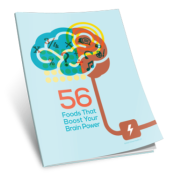 56 Super Foods That Boost Your Brain Power*
56 Super Foods That Boost Your Brain Power*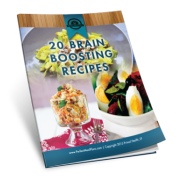 20 Delicious Brain Boosting Recipes*
20 Delicious Brain Boosting Recipes*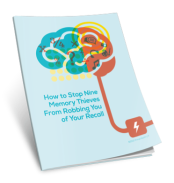 How To Stop Memory Thieves from Robbing Your Recall*
How To Stop Memory Thieves from Robbing Your Recall* Blood Sugar Management Cheat Sheet*
Blood Sugar Management Cheat Sheet*
Feel free to order at any time, simply by clicking the "I Want The
Unbreakable Brain" button at the bottom of this page. Your order is protected by our
100% money back guarantee, so you risk nothing for giving it a try.
Now, just ahead, I'll tell you more about these valuable FREE reports. But first, let's cover the remaining brain-healthy actions that you can start using right now.
Here's one that I believe will even make you feel more energetic…
BRAIN HEALTHY ACTION #9
Consider alternatives to Beta Blocker drugs†

Beta blockers are drugs prescribed for a number of health problems, but especially for high blood pressure.
But for some people, this type of drug has side effects that can cause memory problems by preventing neurotransmitters from working properly.[39]
You'll recall that neurotransmitters are brain chemicals that transport messages from one neural cell to another, across a bridge called the synapse. They're very important!
You can imagine… if you hinder your neurotransmitters, you'll make it harder for your brain to conduct its communications. And that can potentially make it much harder to think and concentrate, to learn new things, and to remember.
I'm sure you've heard of "brain fog." That's when you're not as mentally sharp, when your thinking is slower, when you can get confused. For some people, beta blockers can have this side effect.
With beta blockers, you may feel fatigued, too, another unpleasant side effect that can hamper your cognitive abilities.
If you suspect that a beta blocker drug is hampering your cognitive skills — and if you'd like to see if you can improve your memory and mental clarity by not taking this drug — talk to your doctor about alternative treatments for hypertension.
Much can be done with diet and exercise, and other simple things that won't hurt your mental function.* All of the methods in my book may help. And your doctor may agree with them.
You can even take my book and show it to your doctor, as this reader did…

"I took your book to my doctor's office, and he knew of it and said it was one of the best. My doctor is on board with this plan."*
— Beverly C.
West Des Moines, IA
*Results are not guaranteed and may vary from person to person
You can also get "The Blood Pressure Solution," a book written by my colleague, Dr. Marlene Merritt.
She has great natural strategies for getting your blood pressure into the normal range without using drugs that have potentially brain-harming side effects. Later on, I'll provide a link to learn more about her book.*
But for now, let's move on to another action from my book…
BRAIN HEALTHY ACTION #10
Include Rich Social Interaction

Do you like mixing with others? If so, you're doing a brain-healthy activity.
Humans are born to the longest period of dependence of any species on earth and require interaction with others[40] for both physical and cognitive health.
In fact, socialization is so important that physical isolation and loneliness can be risk factors for several diseases[41], including mental disorders*
"A study looked at the risk of dementia in people over 70 and found that people who have solid social support have a low risk of dementia," says Ross Andel, PhD, associate professor at the School of Aging Studies in the College of Behavioral and Community.[42]
Here's part of the problem — as we get older, we too easily fall into a pattern of staying at home, watching TV, and just not getting out in the world to engage with others.
You might say, "Oh, I'm too tired for that" or "I don't know many people I like." These may seem like reasonable excuses. But for some people, that can be a recipe for trouble. Maybe for you, too.
To help prevent cognitive decline, step out and talk to your neighbors. Get together with friends for lunch or dinner…
Participate in community fundraising events. Go to church or temple. Volunteer at your local hospital. Join a book or movie club.
And here's a smart idea: combine socialization with physical exercise, which you'll do if you join a hiking, dancing, cycling, or exercise group.
Even playing bridge or mahjong is healthier for your brain than sitting at home watching cable news all day. That can be stressful and lead to harmful changes in the brain.*[43]
University of California, Berkeley researchers have shown that chronic stress generates long-term changes in the brain. This may explain why people suffering chronic stress are prone to mental problems later in life.[43]
Numerous studies show that social interaction has a protective effect against the onset of dementia. So, get out and do things with friends, or volunteer to help others.[44]
I have much more on this subject in my book, The Unbreakable Brain, which is yours at half price today. And, remember, this special offer includes 4 FREE bonus reports:
 56 Super Foods That Boost Your Brain Power*(a $15 value)
56 Super Foods That Boost Your Brain Power*(a $15 value) 20 Delicious Brain Boosting Recipes*(a $15 value)
20 Delicious Brain Boosting Recipes*(a $15 value) How To Stop Memory Thieves from Robbing Your Recall*(a $15 value)
How To Stop Memory Thieves from Robbing Your Recall*(a $15 value) Blood Sugar Management Cheat Sheet*(a $5 value)
Blood Sugar Management Cheat Sheet*(a $5 value)
But before I tell you about these valuable bonus reports, let's look at…
BRAIN HEALTHY ACTION #11
Take Brain-Supporting Supplements
Do you think your brain is getting the specific nutrition it needs to maintain good health for as long as you live?
Unfortunately, for many people, the answer is "no."
Some researchers have found that soil depletion, hybrid breeding, and genetic modification have taken a toll, producing foods that look good but in many cases have diminished nutrients.
According to Scientific American, a landmark study on food crops — conducted by Donald Davis and his team of researchers from University of Texas at Austin's Department of Chemistry and Biochemistry — found reliable declines in key nutrients for 49 fruits and vegetables over the past 50 years. The researchers chalk up the declines to the preponderance of agriculture practices designed to improve traits other than nutrition, such as size, growth rate, and pest resistance.[45]
What's more, a recent expose in the New York Times Sunday Magazine stated that "Studies published within the past 15 years show that much of our modern produce is relatively low in phytonutrients — the compounds with the potential to reduce the risk of four modern scourges: cancer, cardiovascular disease, diabetes and dementia."[46]
And there's another problem – according to some studies, as we age our GI tract performs with less and less proficiency. So, we don't absorb the nutrients left in these modern foods as well as we did when we were younger.[47]
I believe our brains are suffering for it. But there's an easy solution for this problem — supplement!
In my book, The Unbreakable Brain I devote an entire chapter to key vitamins, minerals, amino acids and antioxidants that support brain health.
I go over in detail the key supplements that provide various types of nutritional support for the body, as well as the studies that show how they can help maintain normal brain health.*
I urge you to see my book, but I will give you two right now that I believe are very important.
The first is CoQ10, a substance similar to a vitamin that your body makes and is found in every cell. CoQ10 helps to generate cellular energy and also acts as an antioxidant, protecting cells against the free radical damage that contributes to aging.[48]
As you might imagine, that's especially important to the health of brain cells.[49]
But according to research, as you age you make less and less CoQ10, and thus less of its protective benefits are available to your body.
In addition, research shows your levels of CoQ10 are further diminished if you have diabetes or heart disease. And CoQ10 also drops significantly[50] if you use statin or blood pressure drugs.[51]
CoQ10 is widely used for heart health, eye health, asthma, and chronic fatigue. But the ways in which it may help protect your brain are most intriguing…
According to a study led by professor Mancuso Michaelangelo at the Neurological Clinic, University of Pisa, Tuscany, there is increasing evidence that Alzheimer's-Dementia is associated with oxidative damage and mitochondrial dysfunction.
Professor Michaelangelo and his team concluded that CoQ10 was found to be helpful in treating brain cell mitochondrial dysfunction, and also helpful in preventing oxidative stress and apoptosis [cell death] resulting from mitochondrial dysfunction.[52]
Remember earlier, we talked about the best prevention for serious brain decline is to avoid neural damage? Well, Dr. Michaelangelo's study results suggest that CoQ10 may help prevent brain cell damage and death.[52]
See my book, The Unbreakable Brain, to learn more about CoQ10.
The second nutrient of value is Omega 3 Fish Oil, an essential fatty acid that your brain needs but your body doesn't make.*[53]
That means you have to eat foods that supply it, such as walnuts, flax seeds, and fatty fish like salmon, albacore tuna, and sardines. Or you can supplement with quality cod liver oil.
How do the Omega 3 fats help your brain?
They're absolutely vital to normal cellular health. Without these fats, your cell membranes may suffer leaks and malfunctions.
Omega 3 fats are also believed to help your body tame inflammation, the driver behind many chronic diseases, including neurodegenerative diseases like Alzheimer's.*[54]
In a 2015 study of 500 people, those taking fish oil showed fewer signs of cognitive impairment.[55] And in a large scale study of nearly 22,000 Norwegians, fish oil was found to reduce the incidence of depression by 30%.[56]
And speaking of depression, listen to what one reader said after reading The Unbreakable Brain…

"Thanks for the encouragement that memory decline could be fixed… and the steps to fix it. I was so very stressed out and depressed. Not anymore. Now my brain is flying. I am so much happier."*
— Cheryl C.
Lakewood, CA
*Results are not guaranteed and may vary from person to person
By the way, I have several more important supplements to recommend for your brain health, so please see Chapter 6 in my book, The Unbreakable Brain, which is yours today at just half price.
And now, let's finish up with…
BRAIN HEALTHY ACTION #12
Control Your Blood Sugar
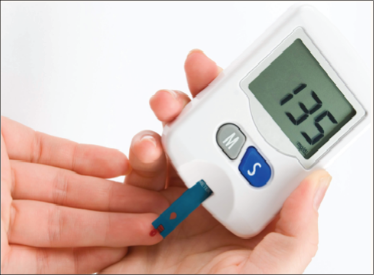
This one is essential. That's why I saved it for last.
If you want to help your body prevent memory loss and brain decline, you need to control your blood sugar. And the easiest way to do that is to cut back on sugary foods, including refined carbohydrate foods that convert to sugar once inside your body.
It may be hard to imagine, but America didn't always have such a love affair with sugar.
In 1822, the average American consumed 4 to 5 pounds of sugar a year. There were many ways to die back then — Indian attack, hard labor on a farm, tuberculosis — but nobody died of eating too much sugar.[57]
Today, the average American eats over 100 pounds of sugar a year, and people are dying of diabetes, heart disease, cancer, and Alzheimer's in large numbers. Is there a connection?
I believe so… as too much sugar in the blood can cause chronic inflammation, and health researchers continue to find links between chronic body inflammation and many diseases, including the brain disorders.*
You may already know that eating too many refined carbohydrate foods — which convert to sugar in your body — can potentially lead to insulin resistance and metabolic syndrome…
These conditions can put you at higher risk for Type II Diabetes… which the Mayo Clinic says increases your risk for Alzheimer's.[58]
But what you probably don't know is that a healthy insulin response is also important to neural cell signaling.
In a study on insulin receptor activity in the brain, researchers Shu Ling Chiu and Hollis Cline found the following.
"The discovery of a crucial role for the insulin receptor in synapse maintenance and circuit function suggests a cellular mechanism to illustrate how 'impaired insulin receptor signaling' may contribute to neurological disorders."
Remember earlier when we talked about how brain cells communicate by sending messages across a type of neurological bridge called the synapse?
Quite simply, when synapses are damaged, or die, communication lines are knocked out, and for some people that may lead to thinking, memory, and emotional problems.
In their study findings, Chiu and Cline go on to say…
Insulin receptor signaling inhibits a key event in the formation of neurofibrillary tangles by reducing tau protein phosphorylation. Additionally, insulin receptor signaling prevents plaque formation by modulating amyloid β (Aβ) release and degradation.[59]
In plain English, they're saying that healthy insulin activity in the brain helps to prevent the development of the plaques and tangles associated with Alzheimer's Disease.
Earlier, of course, we learned that chronic inflammation may worsen neural damage. And we know that too many sugary and refined carbohydrate foods in the diet can lead to chronic body inflammation.
Listen to what a brain researcher has to say about chronic inflammation…
"Interactions between damaged neurons and over activated microglia create a vicious self-propagating cycle of uncontrolled, prolonged inflammation that drives the chronic progression of neurodegenerative diseases."[60]
In plain words — chronic inflammation is bad for your brain. So, whatever you do… don't help this process by driving up your blood sugar levels.
Refined carbohydrate foods such as bread, pasta, potatoes, and chips convert to sugar inside your body, so it's a good idea to limit your consumption of these foods.
Remember, too, that sugar is added to processed foods. Everything from salad dressings to pasta sauces, to ketchup and guacamole dip. So, read your food labels.
It takes a little detective work to uncover the hidden sugars in today's foods, but in my book, The Unbreakable Brain I'll show you which foods to limit… and which ones you may want to avoid altogether.
Don't forget when you order my book today, you'll also receive my Blood Sugar Management Cheat Sheet, which will help make choosing healthy foods even easier.
And here's more good news: Once you start cutting back on the sugary and refined carbohydrate foods, you may find yourself feeling better.
You may have more energy. You might lose weight. Those nagging aches and pains may ease up. And all of these things will motivate you to do more.
Your reward will be moving closer and closer to better health, which may help save your memories, enhance your thinking skills, and ultimately protect your freedom and independence!
I don't have to tell you… one of the worst outcomes for those who get progressive brain disorders is that they can't take care of themselves, and then, sadly, they end up in care homes.
I don't ever want that to happen to you.
And that's why I urge you to get full details on all 12 of my brain-healthy actions — and dozens more — in my book, The Unbreakable Brain.
I consider a few of the brain-healthy actions to be essential, and for convenience, I've marked those for you. But, otherwise, you can pick and choose the ones you like best.
The more you do, the stronger and more resistant your brain will become to memory recall problems and cognitive decline.
And, remember, my publisher, Primal Health, LP, is making my book available at half price today — less than the cost of single dinner at a nice restaurant.
Listen to what Deborah S. says about The Unbreakable Brain…

"I loved the book. It was easy to read [and] gave so much new information about the brain and mental decline. Without your book I would not be on the path to a brighter future."*
— Deborah S.
Renton, WA
*Results are not guaranteed and may vary from person to person
Also listen to this…

"I have long wondered if there would ever be a cure for mental decline. I hoped and prayed there would [be]. Your book addressed that concern…with wonderful and positive approaches to fighting the problem."*
— Lucille J.
Orinda, CA
*Results are not guaranteed and may vary from person to person
And this, too…

"Memory decline hadn't happened to me until recently. Your book was very, very good. A treasure trove of information actually. In fact, I am on my second reading. I understand more each time I read it. I've always hard a hard time pulling names out of my brain, but now I am able to remember the last names old friends, the full names of my high school class, and even the names of the kids I went to preschool with!"*
— Susan P.
Kennewick, WA
*Results are not guaranteed and may vary from person to person
In The Unbreakable Brain, you'll discover…

- The important mineral that plays a direct role in improving learning and memory.* Do you have enough? See page 80 in my book to find out!
- Why a deficiency in B-9 hurts memory recall and can lead to cognitive decline* — see page 75 in my book.
- Why some anti-histamines can cause cognitive decline* — see page 40.
- Why researchers believe Gingko Biloba is a rising supplement star in the area of "memory enhancement"* — see page 86.
- The cognitive tests you can take online that can help you identify early problems, including the need for formal evaluation* — see pages 46-47,
- How Computerized Cognitive Retraining — better known as brain games you play online – may help you build new brain cells and neural pathways.* See page 64.
Plus…
- Why long-term use of sleep aids such as Ambien, Sonata, and Lunesta may hamper your ability to learn and remember new things* — see page 41
- The toxic metal in household products that recent studies have shown may raise the risk for Alzheimer's and other neurologic disorders.* Watch for it on labels and avoid it — see page 30.
- How some residual pesticides in conventionally grown foods may cause inflammation, which researchers say is major contributing factor in degenerative diseases.* — see page 26.
All together, you'll get dozens of brain-healthy actions. And, in my book, I don't just point out things that harm your brain. I also provide alternatives and solutions, so you always have a path to good health.
Plus, The Unbreakable Brain includes the 28-Day Brain Renewal Plan I've developed for my patients. This plan, according to my patients' testimonial interviews, has yielded great success.* And I want you to have that success, too.
Start your 28-Day Brain Renewal Plan today

My plan introduces one new element each week that is designed to help you with your brain health.*
All together, these actions become the foundation to helping your body improve its cognitive function while protecting against mental decline*.
As you might imagine, the strategies involve a little more education than I can provide in today's presentation, but you'll get everything you need in my book.
You’ll see…
- How to manage your blood sugar to maintain a proper insulin response while also helping to tamp down inflammation.*
- How to recognize fake foods that are filled with inflammatory fats, sugars and chemicals.
- How to choose fresh nourishing foods, including many that you can turn into brain-healthy snacks to keep handy in your fridge.
- Why you need fat, including the wonder fat in coconut oil. I'll even show you one type that has the coconut flavor removed, which you may prefer.
- How to get the stress out of your life, including many hidden stresses that are harming your brain, even while you're unaware of them.*
- How to get the maximum benefit from exercise —it's not how much you do, but the way you do it. I'll show you some of the easiest ways.*
It's all there for you, a full program that details what to do, step-by-step, week by week, so that you can quickly help your body improve…
- Your memory recall*
- Your learning skills*
- Your decision making abilities*
- Your attention and focus*
- Your mood and peace of mind*
These steps are not hard to do. You just have to be willing to do them. And if you've stuck with me this far, I think you are willing. I also think you can tell how sincere I am in helping you.
So, I urge you to act now in ordering The Unbreakable Brain. Your timing could not be better…
Today, my publisher, Primal Health, LP, is making my book, The Unbreakable Brain, available to you at half off the regular price, but just for a limited time.
This offer could be gone later today, and even in the next hour! So, please act now.
Regularly, my book sells for $54, and it's quite a bargain at that price, considering the dozens of brain-healthy actions and smart tips for helping your body stop and reverse memory decline… all detailed in ways that make it easy for you to take action.
This is the same program my patients routinely pay several hundred dollars to receive at my clinic in Austin, Texas. But now you'll get everything you need in my easy-to-use guidebook — and at half price!
Today, The Unbreakable Brain is yours for just $27 — fully half off the regular price.
Yes, just $27! As promised, that's less than you'd spend for a single dinner at a nice restaurant.
100% Money Back Guarantee

Of course, your small investment in The Unbreakable Brain comes with a
100% money-back guarantee. You must be completely satisfied with the book
or your money back, no questions asked.
And there's much more in this special offer for you, too…
When you order The Unbreakable Brain for just $27 today, you'll also
receive 4 VALUABLE BONUS REPORTS — FREE!
Take a look…
YOUR FREE BONUS REPORT #1
56 Super Foods That Boost Your Brain Power*
- Learn why a lack of essential brain nutrients may darken your mood and hamper your memory. But when you supply them, your memory and cognitive functions may soar!*
- Discover the foods that contain Omega 3 fats, antioxidants, and B vitamins, all vital to your brain's good health!*
- See which foods have been shown in studies to reduce inflammation, boost neural connections, and disrupt the creation of brain plaques.*
- Enjoy brain-boosting foods such as dark chocolate, almonds and walnuts. Beets and eggplant. Tomatoes and avocado. Salmon and trout. Plus, garlic, broccoli and sweet potatoes. And strawberries, blueberries and pecans. Coffee, too, and many more!*
Next…
YOUR FREE BONUS REPORT #2
20 Delicious Brain Boosting Recipes*
These brain boosting recipes contain a large amount of brain healthy fat, a moderate amount of good protein, and low carbs and sugar*. You'll get recipes for….
- Roasted Pepper, Spinach and Asparagus Scramble
- Grilled Buffalo Chicken with Hot Sauce and Celery
- Turkey Pumpkin and Almond Meatballs with Broccoli
- Zucchini and Eggplant Scramble with Raspberries
- Italian Baked Eggs with Olives and Tomatoes
Plus…
- Smoked Salmon, Carrot and Apple Salad
- Crunchy Turkey Taco Wraps
- Chicken Salad with Blueberries and Pecans
- and a dozen more!
Next…
YOUR FREE BONUS REPORT #3
How To Stop Memory Thieves from Robbing Your Recall*
See if you recognize any of these things — You can't remember where you put your keys… you're talking about a movie, but can't remember its title… you walk into a room but can't remember why you went there. If so, check these memory thieves…
- See how a very low salt diet may cause memory loss and confusion in some individuals.*
- Discover why a protein-poor diet may deplete your neurotransmitters and lead to poor memory recall.*
- Find out why, for some people, eating too many refined carbohydrate foods may cause unstable blood sugar, as well as insulin resistance, and increased inflammation that can worsen brain cell damage.*
Plus…
- Discover why a lack of physical exercise may starve your brain of vital food.*
- See how some chemicals from medications may rob your memory!*
- Learn how to stop four more common memory thieves!*
And, finally, you'll receive…
YOUR FREE BONUS REPORT #4
Blood Sugar Management Cheat Sheet*
As you've already learned, controlling your blood sugar can be a vitally important strategy to good brain health.* Remember, too much sugar in the bloodstream can cause inflammation. And it can adversely impact insulin response, which may be harmful to your brain and cardiovascular health*. But now you'll…
- See why eating the right foods more often may help normalize your blood sugar levels*
- How to control blood sugar spikes with this simple FAT trick*
- Why carbs should be limited, but only if they're on this handy list.
- Plus, why you can't eat too many green vegetables, beets and carrots!
- And much more!
This is a super value — today for just $27, you get my book…
The Unbreakable Brain: How to Shield Your Brain
From Cognitive Decline for Life* ($54 value)
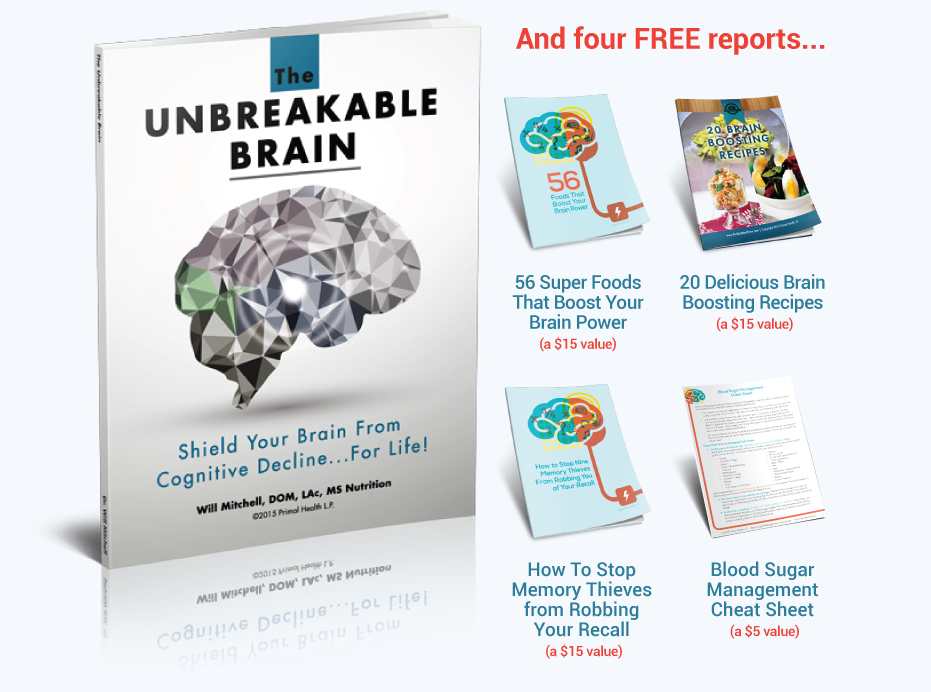
That's a total value of $104… ALL for just $27 today.
But You Must Act Now!
My publisher has authorized this special half-price offer for a limited time. It may be gone in a day, even in an hour. So, please do your brain a big favor and click on the "I Want Unbreakable Brain at Half Price" button at the bottom of your page.
Remember, just as it is for many others… improving your memory… your concentration… your learning skills, and even your mood may just be a matter of giving your brain what it needs, while taking away what's been hurting it.
Listen to what these readers have to say…

"I am seeing an improvement in my memory all thanks to The Unbreakable Brain. It has given me better concentration in court (I am a count stenographer). Thanks!"*
— Trenna N.
Greene, NY
*Results are not guaranteed and may vary from person to person

"It's amazing how things can affect our entire bodies—even taking medications prescribed by doctors. I like how The Unbreakable Brain describes everything in plain English. Thank you for doing that. I’ve mentioned this book to many people so far because there is so much to learn and things I never expected to hear."*
— Alma V.
Newport Beach, CA
*Results are not guaranteed and may vary from person to person
Don't risk brain decline and memory loss. And especially don't risk your freedom and independence!
ACT NOW TO IMPROVE YOUR BRAIN HEALTH*
Order now by clicking the "I Want The Unbreakable Brain" button at the bottom of this page. Scroll down and you'll see it.
And once you have the book, please start using the brain-healthy actions you like best… to help your body boost its memory… to help your body improve its mental clarity…and to help your body protect your brain from decline and disease
I know you'll be glad you ordered my book. It's helped thousands, and I believe it can help you, too. Thanks for reading. I'm Dr. Will Mitchell… for your precious memories and good health!

 Please wait, validating...
Please wait, validating...






































